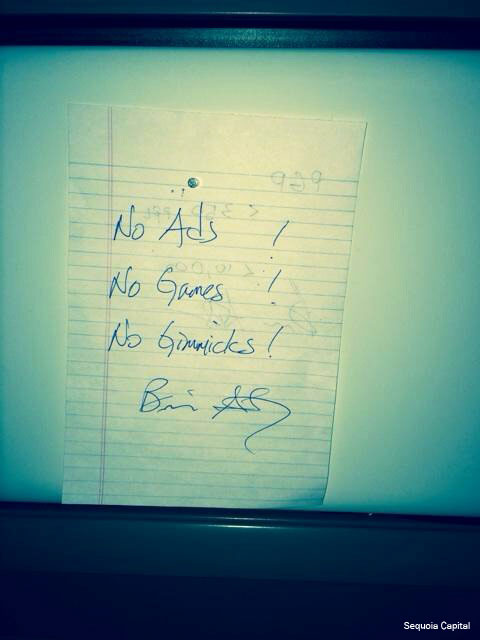Facebook has posted on its blog, detailing the reasoning behind the acquisition, as well. The post notes that WhatsApp will continue to operate independently and retain its brand. In addition, WhatsApp co-founder and CEO Jan Koum will join Facebook’s board.
Facebook notes that WhatsApp has over 450 million MAUs, with 70 percent of those active each day. In a staggering comparison, Facebook also notes that the messaging volume of WhatsApp approaches the SMS volume of the entire global telecom industry — and that it’s adding 1 million users a day.
“WhatsApp is on a path to connect 1 billion people. The services that reach that milestone are all incredibly valuable,” said Mark Zuckerberg, Facebook founder and CEO in a statement.
“WhatsApp had every option in the world,” Zuckerberg continued in a post to his Facebook page, “so I’m thrilled that they chose to work with us. I’m looking forward to what Facebook and WhatsApp can do together, and to developing great new mobile services that give people even more options for connecting. I’ve also known Jan for a long time, and I know that we both share the vision of making the world more open and connected. I’m particularly happy that Jan has agreed to join the Facebook board and partner with me to shape Facebook’s future as well as WhatsApp’s.”

Jan Koum, WhatsApp co-founder and CEO, said, “WhatsApp’s extremely high user engagement and rapid growth are driven by the simple, powerful and instantaneous messaging capabilities we provide.”
Facebook specifically calls out its deal with Instagram as a template for how it will deal with WhatsApp:
Facebook fosters an environment where independent-minded entrepreneurs can build companies, set their own direction and focus on growth while also benefiting from Facebook’s expertise, resources and scale. This approach is working well with Instagram, and WhatsApp will operate in this manner. WhatsApp’s brand will be maintained; its headquarters will remain in Mountain View, CA; Jan Koum will join Facebook’s Board of Directors; and WhatsApp’s core messaging product and Facebook’s existing Messenger app will continue to operate as standalone applications.
In a post on the WhatsApp blog, Koum elaborates on that:
Here’s what will change for you, our users: nothing.
WhatsApp will remain autonomous and operate independently. You can continue to enjoy the service for a nominal fee. You can continue to use WhatsApp no matter where in the world you are, or what smartphone you’re using. And you can still count on absolutely no ads interrupting your communication. There would have been no partnership between our two companies if we had to compromise on the core principles that will always define our company, our vision and our product.
The note about no advertising is interesting, as that’s obviously Facebook’s primary method of monetization on its main platform — and now Instagram. WhatsApp will also keep its subscription fees, which amount to $1 per user after the first year of use.
WhatsApp investor Sequoia has also posted some information about the acquisition, specifically its very large valuation. The company notes that it only has 32 engineers — making the ratio 1 engineer to every 14 million users. It processes 50 billion messages a day across seven platforms.

The image above is a note that Koum keeps on his desk, outlining the focus of the company on building a ‘focused messaging experience’. Sequioa’s Jim Goetz says that founder Koum’s time growing up in a communist country shaped how he developed WhatsApp.
“Jan’s childhood made him appreciate communication that was not bugged or taped. When he arrived in the U.S. as a 16-year-old immigrant living on food stamps, he had the extra incentive of wanting to stay in touch with his family in Russia and the Ukraine,” says Goetz. “All of this was top of mind for Jan when, after years of working together with his mentor Brian at Yahoo, he began to build WhatsApp.”
Goetz also calls out the 450M user number and the fact that it has spent exactly $0 on marketing and doesn’t even employ a PR person or marketer; its growth all coming from users.
WhatsApp only employs around 50 people total. At 32 engineers, that’s $500 million per engineer.
Facebook currently boasts 556 million mobile daily active users, and WhatsApp alone already has over half of that at 350 million. One particular reason Facebook could be purchasing WhatsApp is to bolster its International footprint — as exemplified by one very telling chart. TechCrunch had previously heard about some abortive acquisition talksbetween Facebook and WhatsApp in late 2012.
Facebook is currently down in after hours trading.
No comments:
Post a Comment